A Most Productive Session of Congress for our Big, Small Town

I’ve often thought that Maine is just one big small town connected by long roads. Well, in the past year or two, those roads have gotten steeper and bumpier as we dealt with an unprecedented pandemic and the resulting economic troubles. As we faced the historic challenges, something impressive happened. We came together and lent a hand to our neighbors wherever we could to keep things running and spirits high.
Down in Washington, Congress tried to help Maine communities get through this struggle, so that our state would come out stronger. To do that, we put in the work and set some things into motion that are already helping Maine people. That’s why you hired us, after all.
The pandemic made something we’d known for a while clear: those roads and networks that connect our big town needed repair, improvements, and expansion — from bridges to broadband. So, while Maine was uniting towards a common purpose, Congress came together to pass the Bipartisan Infrastructure Law — legislation that makes generational investments in physical infrastructure, broadband connections, harbors, and the energy grid. These efforts will lay the foundation for Maine’s 21st century economy and make sure even the most rural areas aren’t left behind.
Over the last two years, as we drove up and down our state, you couldn’t help but see storefronts in trouble and prices rising as the economy struggled through a global recession. And again, while you focused your efforts on getting through the difficult times, Congress took meaningful action. We passed the American Rescue Plan in 2021, which enabled Gov. Mills and the state of Maine to better meet the health and economic difficulties of the pandemic. At a critical moment it expanded healthcare efforts to confront COVID and invested in the state to keep the economy in far better shape than most others nationwide.
Congress didn’t stop there. This year, we took even more concrete steps to cut costs, create jobs, and provide more affordable, cleaner energy. The bipartisan CHIPS Act will bring home the manufacturing of the technical components known as “chips” that are used in everything these days — from smartphones to microwaves to cars — and in doing so reduce prices and create good American jobs. We also passed the Inflation Reduction Act to lower healthcare costs, allow Medicare to negotiate drug prices, and cut energy bills with new rebates for things like heat pumps and solar panels.
Beyond these major investments, we also passed vital legislation to improve the day-to-day lives of Maine people and Americans nationwide. On a bipartisan basis, we expanded health care for veterans exposed to toxic chemicals, stabilized the Postal Service we rely on, strengthened protections for marriage equality, supported Ukraine as it fights for its independence against the Russian invasion, and delivered millions in federal investments to projects up and down our state.
So, as Maine worked to get through hard times, Congress took steps to support our state. We’re already starting to see brighter days ahead and I’m proud to have played a small part down here. It’s a true privilege to listen to you, work with you, and build a brighter future for all the incredible people up and down the roads that connect our big small town.
Protecting Maine's Lobster Industry

Maine's lobster industry has been a signature part of our state's economy and identity for generations. For as long as Maine’s lobstermen and women have been on the water, they've demonstrated their commitment to maintaining and protecting a sustainable fishery in the Gulf of Maine. They have invested in countless precautionary measures to protect North Atlantic right whales, including removing more than 30,000 miles of line from the water and switching to weaker, breakaway rope to prevent whales from being entangled.
The fact is — there has never been a right whale death attributed to Maine lobster gear.
But despite our industry’s good stewardship and work to protect right whales, our lobstermen and women are now faced with punitive regulations that wouldn't meaningfully protect the endangered species, but would threaten the livelihoods of Maine families and small businesses.
It’s unfair and wrong.
As Maine's leaders, we have always said that we will pursue any and all policy solutions to protect our hardworking lobstermen and women along Maine’s coast. That is why I worked with the Maine delegation and Governor Mills to include a provision in the annual spending bill that will enable our lobster fishery to continue to operate and pause the devastating regulations.
Without this provision, Maine’s iconic industry could be facing a complete shutdown and the ripple effects across our state would have been widespread. Our provision, which relies upon the expertise of the professionals at the Maine Department of Marine Resources, is a commonsense bipartisan measure to support the hard working people of Maine’s most sustainable fishery, and I'm proud we were able to get it in the bill.
Securing Jobs at Bath Iron Works
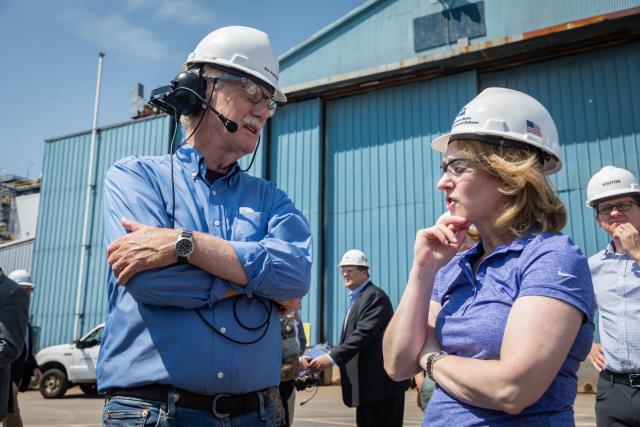
For sixty-two years in a row, lawmakers from both sides of the aisle have come together to pass an annual defense bill that focuses on bolstering American national security and improving the lives of servicemembers and their families. This year, I’m proud to say Congress has done it again.
The National Defense Authorization Act (NDAA) boosts Maine’s economy by authorizing one of the largest-ever multi-year procurement of DDG-51 destroyers, which Bath Iron Works can compete to build, bringing important stability to the Maine shipyard’s planning, and allowing them to scale up their production in the years to come. These ships — known as the workhorse of the Navy — are absolutely critical to our national security, and are an important economic driver for Maine communities.
This year’s legislation also strengthens the backbone of our national defense, including key provisions to ensure our nation can counter growing and rapidly changing threats in Europe and the Pacific. It contains new authorizations to sanction Russia over its unprovoked invasion of Ukraine, and support for the brave Ukrainians fighting for their sovereignty. This bill improves our defensive and offensive hypersonic capabilities, bolsters key cyber defenses, and will modernize how we assess the capabilities of our enemies and allies alike.
Most importantly, the legislation makes significant investments in the essential core of our Armed Forces — our brave men and women in uniform. Along with a 4.6% pay raise to help servicemembers keep up with rising costs of living, the NDAA will study the suicide epidemic in our military so the Department is better equipped to address this urgent crisis.
All told, this bill will make our country safer, strengthen our economy, and support the men and women who serve. To read more about Maine-specific provisions included in the NDAA, click here.
A Forward-Thinking Annual Spending Bill

Every year Congress puts together an annual spending bill which keeps the federal government open and working for Maine people and Americans across the country.
This year Congress once again passed forward-thinking, bipartisan legislation which will support Maine jobs, increase affordability for working families, and invest in our national security. The bill includes funding for shipbuilding priorities at BIW, for supporting our veterans and active duty troops, for protecting and maintaining our National Parks, for supporting our children and families with education and nutrition assistance, and for making housing more affordable.
The bill also includes the Electoral Count Act to provide democratic protections for the peaceful transfer of power. This is essential to the foundation of our democracy.
There is so much worth celebrating in the bill, and all told, I’m grateful to see this bipartisan product pass Congress and be signed into law. I am eager to continue working across the aisle with my colleagues in the coming year on more policies that help Maine people.
Congressionally-Directed Spending for 140 Maine Projects
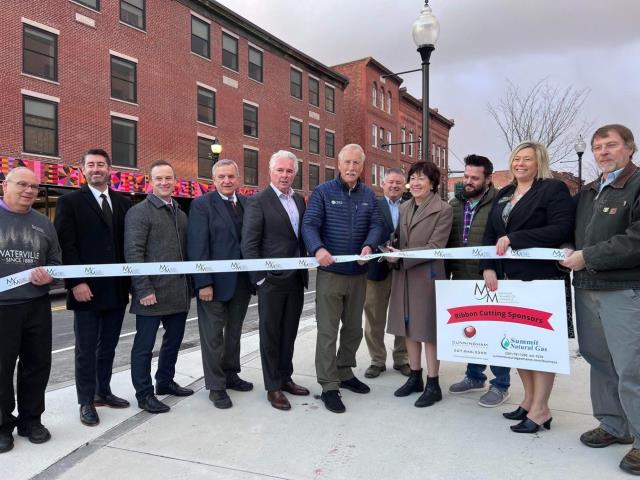
In addition to the big picture benefits of the annual spending bill, we're starting to see tangible impacts in all corners of our state. Working with my colleagues in both chambers, I’m proud to have secured $250,083,018 for 140 Maine projects through Congressionally-Directed Spending (CDS) requests included in the bipartisan Fiscal Year 2023 omnibus appropriations package. The funding will be used for projects like building new fire stations or conducting road repairs by a broad range of state, local, and nonprofit organizations.
Maine people have always looked out for each other, and the 140 nonprofits and local governments receiving these funds are no different — they have proven track records of success and service in our communities and will use this support to expand and improve their efforts. I’m grateful that Congress approved so many of my CDS requests, and deeply appreciate all of the Maine organizations who submitted projects for consideration. I look forward to seeing these investments improve Maine people's lives.
You can see all the projects near you on our interactive map HERE.
Protecting the Foundation of Democracy
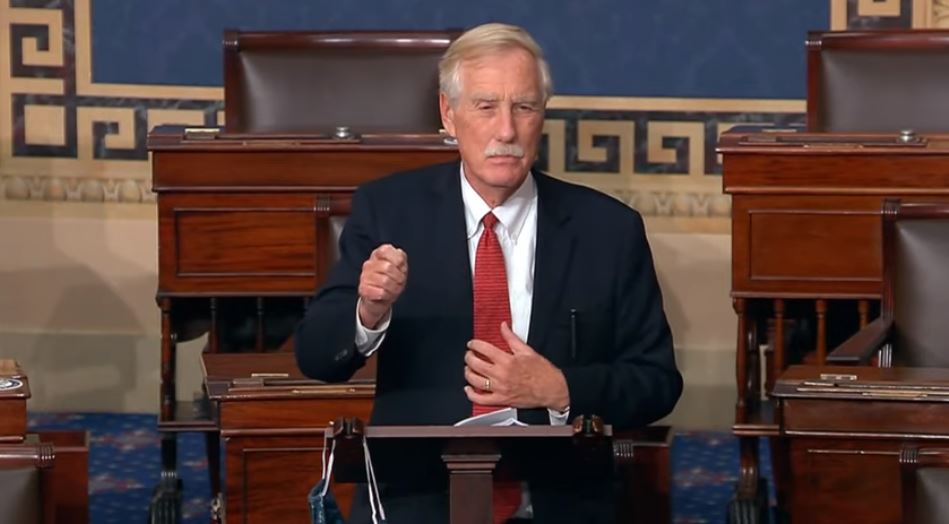
In January 2021, our country encountered one of our biggest threats to our system of government — an attempt by the sitting President to overturn the will of the people. A violent insurrection to stop the electoral count can never happen again. That's why the bipartisan Electoral Count Reform Act is the most important piece of legislation we passed this Congress. It protects the foundation of our entire democratic system: the peaceful transfer of power.
After these outrageous attempts to overturn a free and fair election exposed dangerous vulnerabilities in the antiquated 1887 Electoral Count Act, this bill was essential to disarm the ticking timebomb at the heart of our system of government.
Now, as some continue to raise doubts about our electoral system, the bill ensures the ECA can never again be used as a weapon by disappointed candidates. The Senate took a necessary, historic, and commonsense step to remove dangerous ambiguities from presidential elections and strengthen America's democratic process.
While I continue to look for ways to better protect our elections, this effort will further guarantee that the will of the voters cannot be undermined once they’ve made their choices. And for that, I am thankful.
Giving Back on 'Inside Maine' Podcast

Maine’s nonprofits and volunteers have always stepped up to support our neighbors and communities in need. On Inside Maine this month, I spoke with leaders across our state who shared how volunteerism has helped Maine communities weather the economic and social challenges that unfolded over the past year. In the face of daunting obstacles, these leaders have responded with energy, joy, and compassion — bringing light in dark moments. We discussed the affordable housing crisis and the need for organizations to cut through red tape and bureaucracy to connect vulnerable Maine people with food banks, shelters, and other nonprofits.
I first spoke with Charley Martin-Berry, the director of the Community Caring Collaborative (CCC). She leads the collaboration of state, local, and tribal partners working to improve outcomes for vulnerable Washington County community members. Charley is working hard to ensure that Washington County residents have access to affordable housing, food, and healthcare support.
Vassie Fowler, the Executive Director of Seeds of Hope then told us about the collaboration that is required to connect York County people in need with the appropriate community leaders. Vassie spread a little more holiday cheer this season by sharing that she serves as the honorable Mrs. Claus in York County.
Next, I had a conversation with David Patch who is helping to reduce the stress of our service members who are transitioning from active duty to veteran status. He serves as the commander of American Legion Post 36, and works with the Mid-Coast Veterans Council, Honor Flight Maine, and Veterans No Boundaries. Thank you for your service to our troops, David.
My last discussion was with Sarah Duncan, the Executive Director of United Way Aroostook who is working daily to connect Aroostook organizations with residents in need.
Their work is critical to Maine people and I am eternally grateful for their service to our state. During this holiday season, I hope everyone will continue to build on this work by finding a volunteering opportunity near them. Each of us can do something to make someone’s day a little brighter. I’m deeply thankful for everything that my guests do for our communities and I’m deeply thankful for you — my Maine neighbors that make this state a fabulous place to live.
December Policy Update
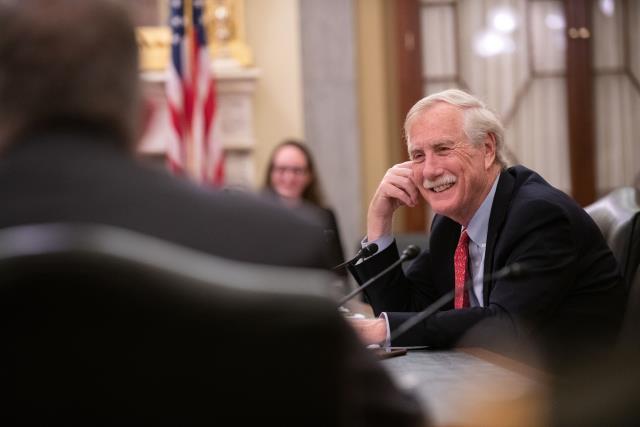
As a reminder, you can read more on my regularly updated press release page at king.senate.gov. Here are some other priorities I’ve been working on:
- Providing Funding to Small Businesses. The Androscoggin Valley Council of Governments, Eastern Maine Development Corporation, and Sunrise County Economic Council will receive more than $500,000 in federal funding to provide business training, technical help, and loan assistance to small businesses in Androscoggin, Franklin, Oxford, Hancock, Penobscot, Piscataquis, Waldo, and Washington counties. Read more HERE.
- Promoting early childhood development. Androscoggin Head Start and Child Care in Lewiston and Downeast Community Partners in Ellsworth will receive nearly $3 million in federal funding to develop new approaches to learning, strengthen social and emotional development programs, and expand physical health education. Read more HERE.
- Ensuring Maine refugees have access to mental health resources. Spurwink has received $800,000 in federal funding to support its ShifaME Trauma Systems Therapy for refugees. This federal funding will help to expand the trauma therapy capabilities of ShifaME, Spurwink’s refugee service provider. The organization currently offers case management and counseling services to refugees across the state. Read more HERE.
- Aiding the Passamaquoddy Tribe. The Passamaquoddy Tribe welcomed a $5 million planning grant to respond to climate-related environmental threats. The grant was awarded through the U.S. Department of the Interior’s newly announced Voluntary Community-Driven Relocation program and funded by the Bipartisan Infrastructure Law. Read more HERE.
In The News
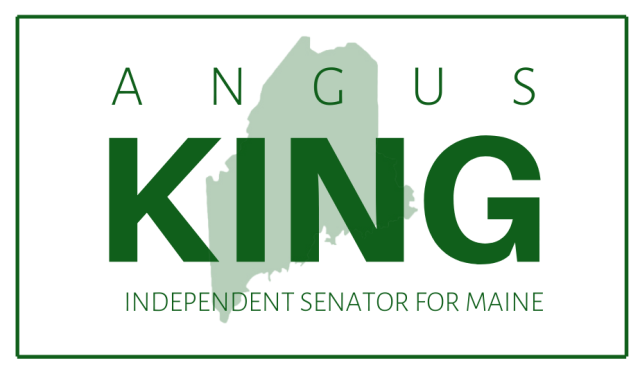
Thanks for subscribing to my monthly newsletter! I would love to hear your ideas for how we can make Maine and our country a better place. Please feel free to reach out with any questions, comments, or concerns by visiting: https://www.king.senate.gov/contact –we look forward to hearing from you.
All the best!

To unsubscribe to this e-Newsletter click HERE.
|